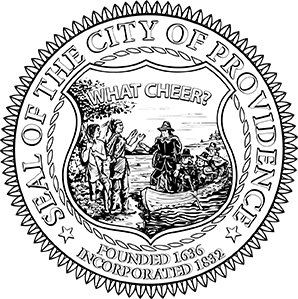The HCO provides technical assistance and other support to Providence Public Schools to support healthy lives for the district’s 22,000+ students.
Current HCO work includes:
- Bringing public health expertise to the Physical Health and Nutrition, Healthy Relationships, and Social Emotional working groups of the District’s Health and Wellness Committee
- Leading the City’s Green Schoolyard Strategy to transform Providence schoolyards into environmentally healthy learning environments that support physical activity and child development
- Creating the Providence Farm to School action plan to connect Providence students with the local food system through local foods, school gardens and food-based education
- Developing and supplying the first free school menstrual hygiene product (MHP) distribution program in Rhode Island
- Supporting development and implementation of the Providence Public Schools Wellness Policy, including creating the first permanent School Wellness Coordinator position.
Learn more about wellness in Providence Public Schools.
For more information about HCO’s work on school wellness, contact Rachel Newman Greene.
